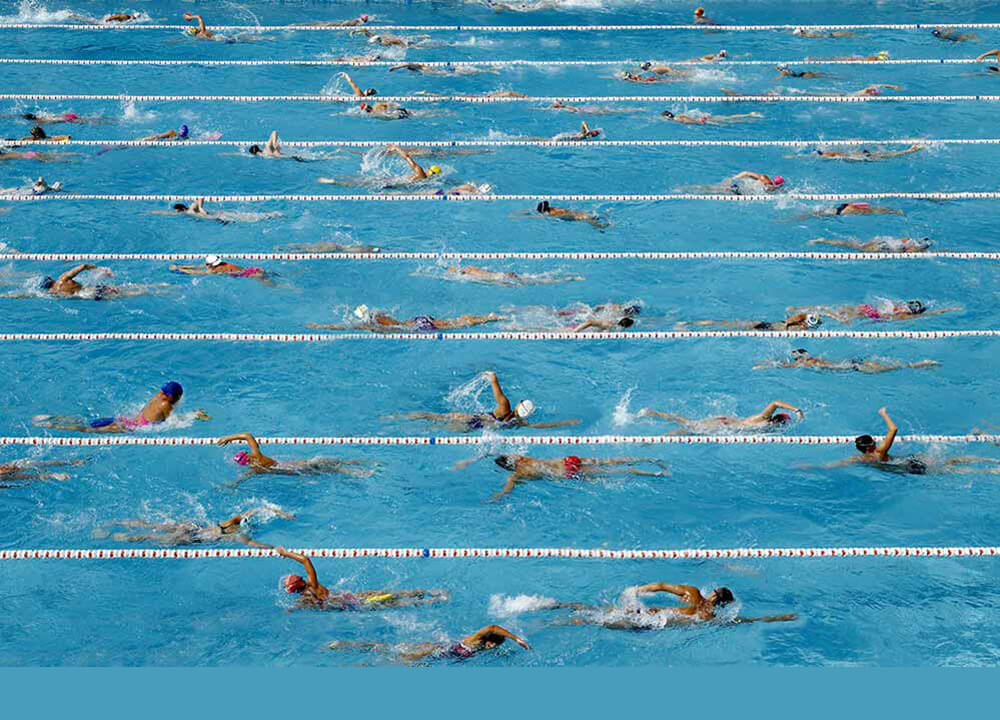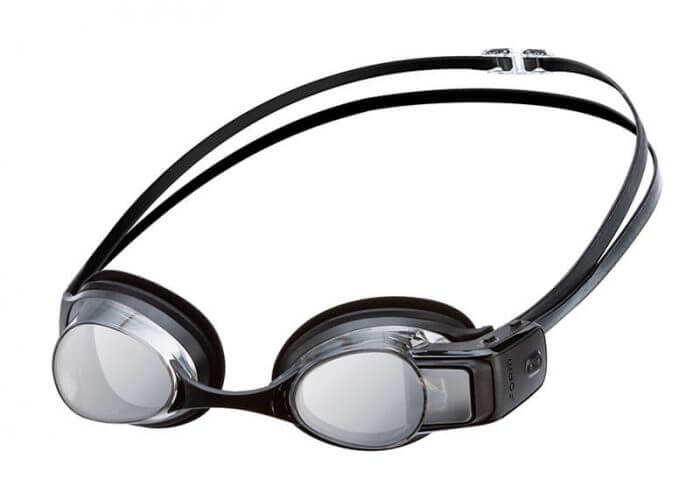Challenging 9 Swimming Myths That Have Run Rampant

Challenging 9 Swimming Myths That Have Run Rampant
By Gigi Picard, Swimming World College Intern
For whatever reason, myths just pop to the surface when non-competitive swimmers comment on swimmers and swimming in general. I know I’ve encountered some wild theories like swimmers shouldn’t go on land or are secretly dolphins. To minimize those SMH moments swimmers all experience when listening to their land friends, I’d like to debunk nine swimming and swimmer myths.
Swimming is not really a sport
This one really bursts my bubbles. Yes, we train in icy water, but swimming is in no way chill. Competitive swimmers train twice a day at least six times a week both in and out of the water. We use every muscle group in virtually every training session. So, you could argue that swimming is one of the most intense athletic activities in the entire world sports. And, FYI, we do indeed sweat!
We don’t know anything about land sports
Without a doubt, at some point in life, most swimmers have played land sports. And, as athletes, we learn more about sports like football, volleyball, basketball, etc. so we can cheer on our land-sport friends – and because we enjoy competition. And, sometimes, we’ll host watch parties for let’s say the Super Bowl as a team bonding and fun activity.
Parent cheering makes swimmers go faster

Photo Courtesy: Annie Grevers
Dear parents, while we appreciate your support in the stands, we would like to inform you that WE CAN’T HEAR YOU as we’re sprinting down the lane. Maybe on the turns we might catch a few GO! cheers. While we so, so, soooo appreciate your support, hope for the best but save your breath for the finish.
Land sport athletes can out race swimmers
DON’T EVER SAY let’s have a race and think you’ll outrace us even in a kiddie pool. It doesn’t matter if you are a football player who benches 300 pounds in the weight room. We will still beat you. We more than likely have trained at least 6,000 yards per practice for several years. Even as my fellow intern Brooke Irving said, we wouldn’t want to embarrass you.
Swimmers are injury-free
How can swimmers get injured? You can’t fall down on your knees in the pool. There’s really no contact. Well, that’s all true, but swimmers do get injured. They quite literally hit walls, skin knees on the bottom of shallow pools during entry, scrape their feet on the hard and broken plastic lane lines, suffer frequent ear infections, and worst of all…sustain painful shoulder related injuries. Swimmers get taped up and get suction cups to help us out. If you’ve ever seen several pepperoni size and color marks on a swimmer, that’s probably from a suction cup.
We only have one pair of everything

Augmented Reality Swimming Goggles; Photo Courtesy: FORM Swimming
While we require one cap, one pair of goggles, and one suit for races, WE NEED SO MUCH MORE! Chances are we have collected several suits over the years that are hanging somewhere on lockers just waiting for retirement. We have to have backup goggles, caps, and suits. Then, we also need backups for our backups.
Swimmers eat way way too much
Do you really have to eat that much? Don’t you have to stay skinny? After a nice, long, two-hour practice, swimmers require lots and lots of food. The chocolate milk jug will be drained by the time anyone else has the chance to go for it. We amp up our carb intake to refuel and build our muscles. We already know we’re gonna need extra protein by the time any food gets on our plates. This leads us to number eight…
Swimmers all have the same body type
There is a myth that the ideal body type for a swimmer is tall, rocking a six pack, with giant paddles for hands and flexible flippers for feet. Ok, there is some truth to this myth. However, not all of us are built like that, and elite swimmers do come in different shapes and sizes. They just make up for it in other ways. For example, I am somewhat petite, and my hands and feet match my height.
Swimming isn’t useful except at the beach
Yep, you do miss the pool when your competitive swim life is over. But in reality, swimming is an amazing life skill. Not only do swimmers continue to enjoy the lakes, oceans and pools of the future, they also are prepared to save lives should emergencies arise. Some of us are even fortunate enough to be able to teach others how to swim. Swimming is, after all, a wonderful gift.
On a final note, whenever I tell a non-competitive swimmer that I am a swimmer, some will say I only know how to doggy paddle. Competitive swimmers don’t dive into freezing cold water at 6:00am to doggy paddle their way through main sets.




Parents pay, we can cheer.
Glen Silvers she never said that. She said swimmers cannot hear you most likely.
Hello my name Is Kisembo Joshua, and iam a swimming coach, in Uganda, hoima oil city. I love seeing interesting and encouraging swimming strokes on this page. Keep it up
I swim, dance, and walk.
My 80 year old body feels every muscle working.
It never has to let its heart return to normal on the dance floor or side walk, as it does on the wall.
Easy days swimming give me a better workout than a brisk walk or dance.
Very helpful article! I think you should give the parents a break however. I could always hear the cheers of my teammates (and I guess my competition’s teammates) and it’s inspiring. Of course no one can hear Mom and Dad individually, but it’s always good to know they are there.